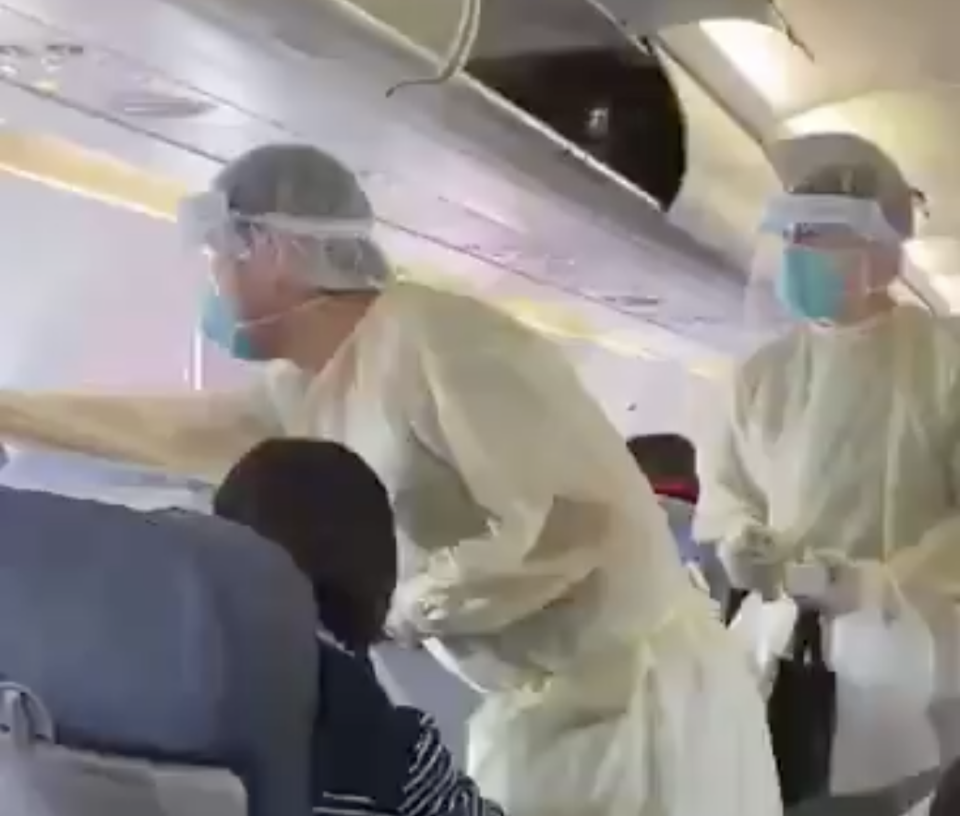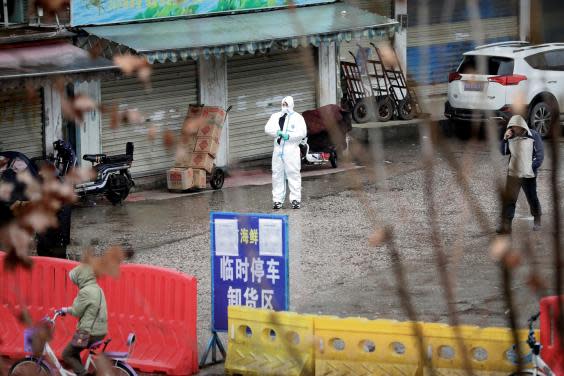China coronavirus: Fears grow over global outbreak as authorities target ‘superspreaders’ amid rising death toll

Health screening checks have been tightened across a number of major travel hubs in the Asia-Pacific region as authorities race to contain the spread of a new respiratory virus from China, with six deaths and almost 300 worldwide cases now confirmed by officials.
Anxiety has grown both at home and abroad after the Chinese government announced on Monday that the novel coronavirus, which causes pneumonia-like symptoms, can be transmitted between humans.
It later emerged that at least 15 health workers in the central Chinese city of Wuhan, where the coronavirus is believed to have first passed from animals to humans at a seafood market, had been infected with the disease after coming into contact with patients.
Since the new virus was first reported to the World Health Organisation (WHO) on 31 December, there have been six deaths and 291 confirmed cases in China while travellers from Wuhan have been isolated in Japan, Thailand, South Korea and Taiwan.
However, concerns have been raised among experts that the actual figures are far greater.
Using population and international travel data, researchers at London Imperial College’s MRC Centre for Global Infectious Disease Analysis have estimated that there were more than 1,700 cases in Wuhan alone as of 16 January. Chinese authorities reported just 41 cases at the same time.
Many in China have scrambled to buy face masks to protect themselves from the previously unknown coronavirus infection, with Shanghai city’s market regulator warning it would punish those hoarding masks or other products used for preventing diseases, the Shanghai Observer reports.
The outbreak has also scared financial markets as investors recalled the economic damage from China’s Sars epidemic, which spread to more than a dozen countries in 2002-03 and killed almost 800 people.
China’s onshore yuan fell 0.6 per cent on Tuesday, its biggest daily drop since 26 August 2019, while airline and travel stocks fell across the region.
European shares also slipped amid concerns about the impact of the outbreak, with luxury goods firms particularly hard hit on worries about weaker demand from Chinese consumers.
With increased travel expected across China for the upcoming Lunar New Year period, authorities have warned that the virus could spread further across the region.
China’s Dr Zhong Nanshan, a leading health expert and Sars specialists, said catching so-called “super-spreaders” – people in the most virulent stage of illness – was the key to preventing a major outbreak.
Banning people with symptoms from leaving Wuhan was the best way to do this, he said. Recent footage on social media showed health workers in protective clothing screening passengers on board what was described as a domestic flight out of the city.
“At present, there is no special cure for this new coronavirus, [we are] conducting some tests with animals,” Dr Zhong said on TV, according to the South China Morning Post. “We expect the number of infected cases will increase over the Lunar New Year travel period and we need to prevent the emergence of a super-spreader of the virus.”
President Xi Jinping also gave his first public statement on the crisis on Monday, saying that the virus must be “taken seriously” and “resolutely contained”. “Party committees, governments and relevant departments at all levels should put people’s lives and health first,” he said.
passengers screened for coronavirus symptoms on a domestic flight out of Wuhan pic.twitter.com/ytUbVzpYRZ
— David Paulk 波大卫 (@davidpaulk)
In Japan, prime minister Shinzo Abe told a meeting with ministers that the country must “step up our caution levels as the number of patients is continuing to rise in China”.
Japan, South Korea, Hong Kong, Malaysia and other places with extensive travel links to China are also enacting stricter screening measures.
And the UAE, whose Dubai International Airport is one of the busiest in the world and receives direct flights from Wuhan, said measures had been taken to sure all ports of entry were “on standby to handle coronavirus cases”.
Experts said that the scale and urgency of the precautionary measures taken by authorities across the world should give hope that an outbreak like 2002-03 can be avoided.
Gabriel Leung, dean of medicine at the University of Hong Kong, said Chinese authorities in particular have responded much more quickly this time.
Dr Leung, who was heavily involved in the response to Sars, said modelling shows that cases will multiply over the coming weeks but the outbreak will gradually lose momentum as precautionary measures take effect.

He told reporters at a briefing: “Our underlying assumptions are, the force of infection is very different now ... because so many public health measures have been undertaken and so many interventions have been executed.”
The illness potentially marks the seventh coronavirus known to science that can infect humans.
So far, the WHO has not recommended trade or travel restrictions but such measures could be discussed at an emergency meeting due to be held on Wednesday. China’s National Health Commission will also provide an update on the same day.
Read more about the coronavirus outbreak and the official response here
Read more
Coronavirus: Everything travellers need to know
China confirms human-to-human transmission of deadly virus
Airport checks for deadly coronavirus begin in three US cities
What are symptoms of new Chinese virus – and where has it spread?

 Yahoo News
Yahoo News 